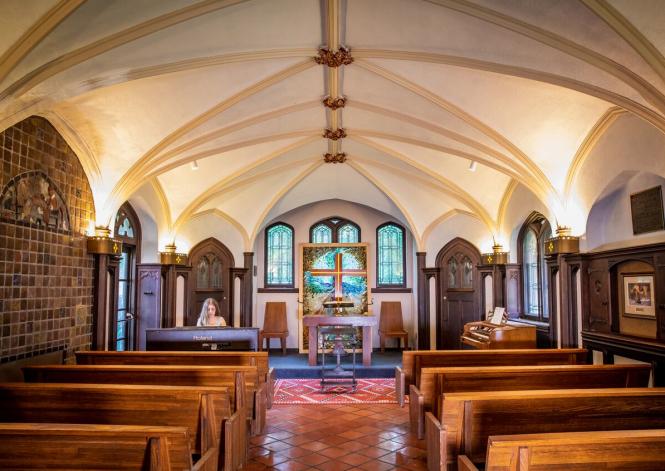The application of religious education is a wonderful thing to have and should be understood as a privilege. The ability to freely practice religion and study it, willingly, is something
other countries may not have the ability to do. With universities like Cedarville, Liberty, Eastern, Messiah, and so many more, the ability to integrate faith into education is available at most levels. The best part is, if you don’t want to go to a Christian school, you don’t have to!
Since the beginning of our country, there were numerous schools like Harvard that integrated religion into their schools. However, today that is not the case. Most Christian schools carry bias (which is human) in their education and theology. There are countless attempts within our culture to use academia to conform the thoughts and beliefs of students.
Instead of being a place of learning and discourse, colleges have become a place of entitlement and debt.
Specifically, looking at Eastern University, there have been numerous occasions where I have wondered why I go here. I
was looking for a place to grow in my faith without being judged, and I have gotten the opposite of that. There can be unconscious harm in attending a Christian university because there will always be institutional biases set. Moreover, due to the complication of unconscious and conscious biases set by institutional means such as money, culture, and so forth, it is hard to determine the difference between Christian and non-Christian institutions. This issue can be problematic, but there
can be bigger issues within the culture of theological fallacies.
Unlike the numerous examples of colleges having enforced biases towards political beliefs on most campuses, there should be no misconstruing theological ideals. When dealing with any religion, having a firm grip on the most crucial aspects of that religion is key in discipleship and the understanding of its morals. If this line is made grey, there can be various side-effects of broken theology, and these side-effects can often manifest politically- either conservative or liberal understandings of theology emerge. There is violence
that is perpetrated on both sides, either physically or spiritually.
Don’t get me wrong, there will always be differences in opinions, which is warranted! The key difference is that an
institution should not have those biases, for it should be the mediator of learning between students on both sides. Unfortunately, Eastern does not do this well. As a conservative
student, I have felt that I need to hold my tongue in most classes because the majority of students think differently than I do.
Pew Research conducted a survey in 2019 that stated, “59% of Republicans think that college is bad for America.” While I would not go so far as to say that, their opinion is validated because Republicans and most conservative Christians are not
allowed to speak because their grades and image may suffer. That is why there are organizations like ISI, YAF, and Turning Point USA; many conservative students feel disenfranchised by their institutions and peers.
This plays a key role in understanding the complexity of Christian institutions because politics should not influence a school’s agenda on religion. Specifically, Eastern University does a poor job, and possibly a harmful one, at allowing all Christians to come and have an equal discourse that produces a healthy discussion.
Simply trying to enforce an agenda on someone, consciously or unconsciously, can cause serious damage to those who call the institution their home. While other Christian colleges like Messiah or Liberty may perpetuate the same issue from a different side, I feel as if my opinions have been silenced due to the unruly pressure of enforcing a certain agenda. My grades and my growth were stalled because of this, but I did learn more about why I believe what I believe.
When you are in an environment that tries to influence your thinking to a certain side, you find what you actually believe to be important to you. The complications that arise through politicizing theology and trying to take moral supremacy is a problem that won’t soon go away. Unfortunately, my experience with a Christian university hasn’t lived up to the expectations that I thought it would when I chose to come here.

